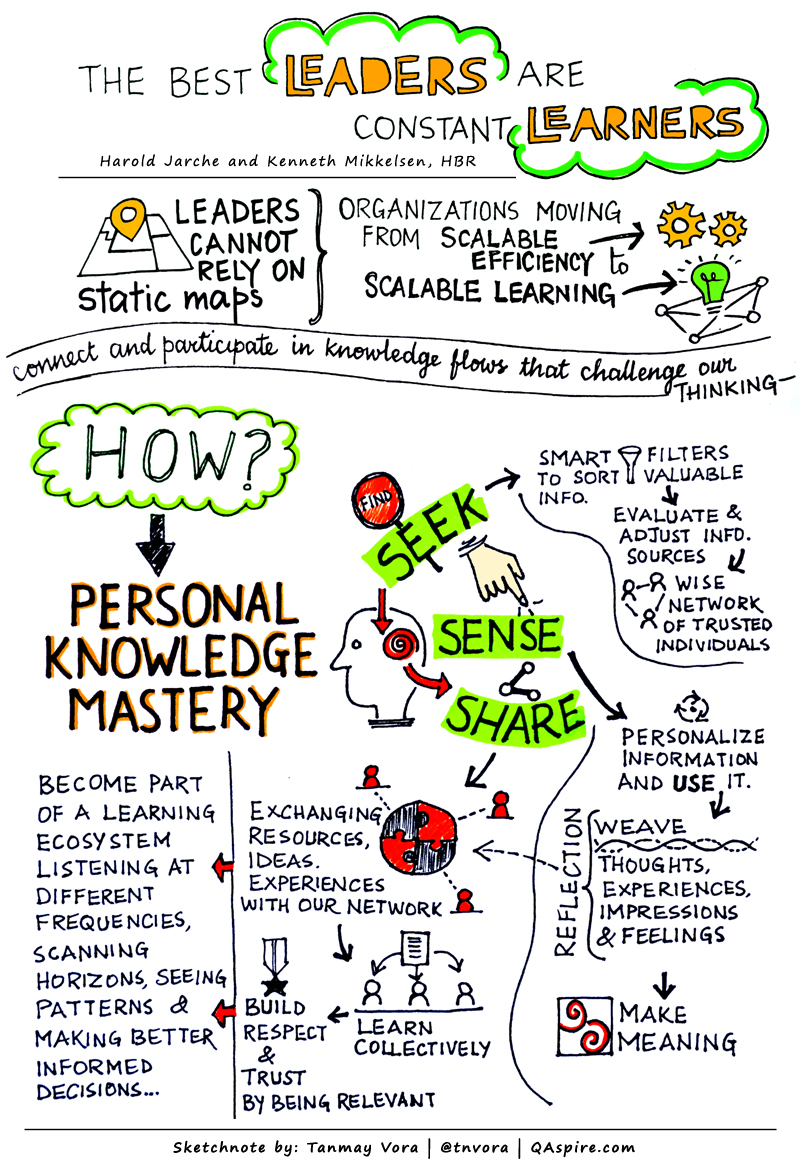Shaping My PKM
“We should find others who are sharing their knowledge flow and in turn contribute our own. #PKMastery is not about being a better digital librarian, or curator, it’s about becoming a participating member of a networked society.” — Harold Jarche
Developing Four Core Work Skills
Since 13th January 2020, I participate in the online workshop ‘Personal Knowledge Mastery‘, which Harold Jarche enables. I enjoy it very much as it helps me to develop those skills:
“The discipline of PKM helps to develop four core work skills, identified by the Institute for the Future:
-
sense-making
-
social intelligence
-
new media literacy
-
cognitive load management”

Source: via a tweet from @hjarche and sketch by @tnvora https://twitter.com/hjarche/status/1211640798267224065
I have joined this workshop as I read recommendations from practitioners in my network:
“The more I am out there chatting to clients, the more I realise that your PKM approach is the number one critical skill set. Any way I look at it, all roads seem to end there. It is the foundation. That’s why I thought this is where they need to start – and not just the employees – everyone including the managers.” — Helen Blunden
And as Harold tweeted:
“When I started working on #PKMastery in 2004 — inspired by @mathemagenic — few people were interested. Now we are implementing the framework and discipline in global organizations. Change takes time” — Harold Jarche
Network Mapping & Networked Learning
One of the first key learning from this workshop is on networks. We were asked:
“Network-centric questions would be, “What are you learning?” or “Who are you learning from?”. For example Twitter asks, “What’s happening?”.
By mapping visually my network, I understand better as I tweeted:
“Visualization gives us a chance to ask ourselves questions about our knowledge-sharing, cooperation and collaboration practices.” < using kumu.io helps me to map my network and to do so #PKMastery”
Here is what my network looks like below.

The screenshot I took from my social network analysis. Done via kumu.io
The next step is to analyse my network with the basics of social network analysis. In the second key learning of this workshop, we learn about communities, especially communities of practice. This part of the workshop on communities also enables me to revisit my usage of Twitter as there are insights, questions and resources to dive into. As I tweeted:
Who is connected to who? What are they talking about? Can I jump into the conversation even if we don’t know each other? https://rotanaty.com/2015/10/03/learning-journey #PKMastery
“Twitter is also for me a place where it clearly pays off to be generous: The more you share what others have done, the more they share your work and the more people get involved.” — @patrikbergman #PKMastery
Update: Read on more emergent practices and reflection in the #PKMastery series.
Did you enjoy the post? Check out Future Skills.












Leave a Reply
Want to join the discussion?Feel free to contribute!